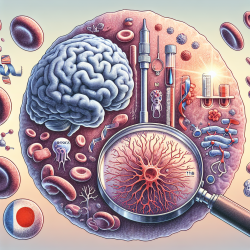Understanding the Impact of ADHD on Academic Success
Attention-Deficit/Hyperactivity Disorder (ADHD) is a prevalent condition that affects individuals across various life stages. The core symptoms of ADHD, including inattention, hyperactivity, and impulsivity, have been consistently linked to adverse outcomes, particularly in academic settings. Recent research, such as the study "ADHD and Academic Success in University Students: The Important Role of Impaired Attention," highlights the significant role that inattention symptoms play in academic underachievement among university students.
Key Findings from Recent Research
The study examined a large sample of 3,688 post-secondary students using a longitudinal design. The findings revealed that students with higher levels of inattention symptoms at the beginning of their academic programs consistently experienced poorer long-term academic success, including lower GPAs and higher dropout rates. This relationship was evident regardless of gender, underscoring the critical impact of inattention symptoms on academic outcomes.
Implications for Practitioners and Educators
For practitioners and educators, these findings emphasize the need for targeted interventions that address inattention symptoms in students with ADHD. Early assessment and intervention can help mitigate the negative impact of inattention on academic success. Educational institutions should prioritize programming that focuses on improving organizational, planning, and time management skills, which are often areas of difficulty for students with inattention symptoms.
Strategies for Supporting Students with ADHD
- Early Assessment: Implement screening tools to identify students at risk for academic challenges due to inattention symptoms.
- Personalized Interventions: Develop individualized education plans (IEPs) that focus on enhancing executive functioning skills, such as organization and time management.
- Academic Accommodations: Provide accommodations such as extended time for tests and assignments to support students with inattention symptoms.
- Skill-Building Programs: Offer workshops and training sessions that teach effective study habits and coping strategies.
Encouraging Further Research
While this study provides valuable insights, there is a need for further research to explore the unique contributions of different ADHD symptom dimensions to academic outcomes. Future studies should focus on larger, more diverse samples and consider additional factors such as anxiety, depression, and learning disorders that may influence academic success.
For practitioners looking to enhance their understanding and skills in supporting students with ADHD, engaging with the latest research is crucial. By staying informed and implementing evidence-based strategies, educators and therapists can significantly improve the academic trajectories of students with ADHD.
To read the original research paper, please follow this link: ADHD and Academic Success in University Students: The Important Role of Impaired Attention.










